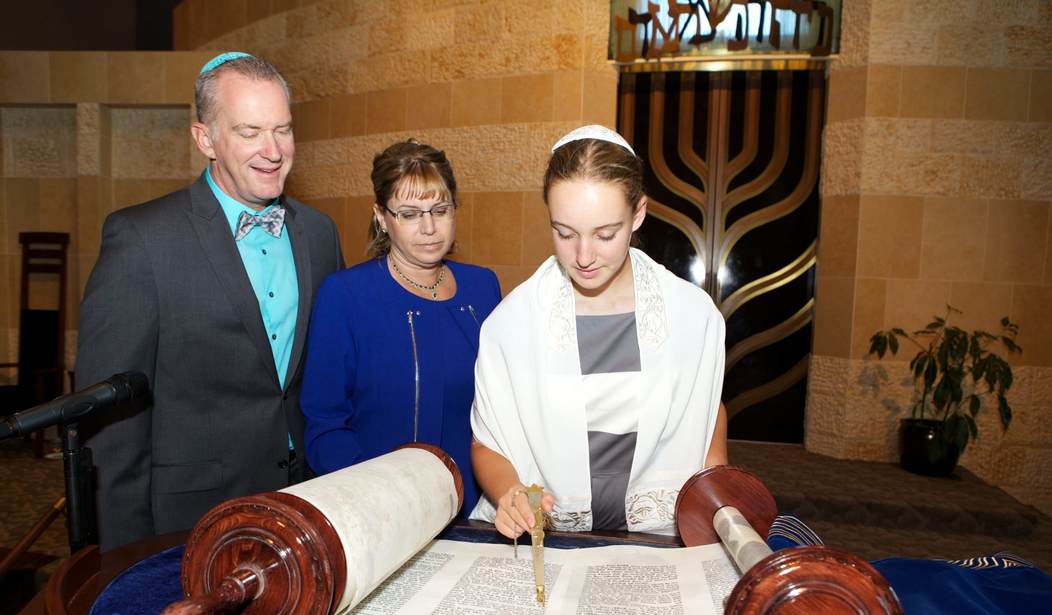Recently, Jewish American cultural critic Peter Beinart lamented the “real American Jewish tragedy” that most Jewish American parents only bring their children to synagogue on the High Holidays of Rosh Hashanah and Yom Kippur. “If you’re an American Jewish parent hoping that the annual trip to synagogue on the High Holidays will instill in your kids a connection to Judaism – it doesn’t work like that,” he admonishes.
Well, duh. That’s about as relevant an argument as the one Christians make regarding Christmas and Easter church attendance. Which is to say, no, of course a child won’t have a firmly established connection to their Judaism if they only attend synagogue twice a year. How could they? It’s like telling you to invite that Great Aunt you met at your Bar Mitzvah 20 years ago to your wedding. In this day and age of $1000 wedding cakes, who’s going to waste a slice on Great Aunt Lipstickstain you haven’t seen since you were in braces, family or not?
Where I disagree with Beinart is his argument that American synagogues, with the exception of the Chabadniks, get it all wrong when it comes to Jewish education. We are fortunate enough to attend a Conservative synagogue that makes Jewish education both entertaining and accessible to children of all ages. My Orthodox friends, doubtful that any non-Orthodox denomination could hold sincere sway with Judaism’s future, think my family an anomaly. Judging by the number of children in my son’s Tot Shabbat class, I guarantee you were are not.
The reality is that plenty of synagogues offer Shabbat programming and Hebrew school education for students through high school. Parents just have to be willing to participate. We Americans tend to put a great deal of responsibility on organizations to sell us on the service they provide. Fair enough – far be it for me to criticize a free market approach, except when it comes to family inheritance and spiritual responsibility. A synagogue can have all the bells and whistles (believe me, I’ve been to them) and people can still walk away, or worse yet, join without ever taking full advantage of what is being offered because they just aren’t willing to live up to their end of the bargain.
Beinart’s solution is to let Rosh Hashanah and Yom Kippur take a backseat to the more entertaining aspects of Judaism. If synagogues want members and parents want Jewish grandchildren, they should focus on the fun holidays instead, like the Israelis do. He’s right that most American Jewish kids will never eat in a sukkah or dress up for Purim. But, no matter how fun you try to make it, Hanukkah will always be the sad, stomped-on runner-up to Christmas in American culture. And while Beinart admits that even the most secular of Israelis will at least relish in a game of dreidel, he does so without acknowledging that an Israeli’s identity is maintained in large part because “a great miracle happened here.” That is the power and the peril of diaspora. Fun is great, but what makes this fun any different from any other fun we could be having anywhere else?
This past Rosh Hashanah I dodged through the crowds of children with my own toddler in tow as we entered the sanctuary to listen to the shofar being blown. Still more teenagers greeted us from the pews upon our entry, happy to see young faces amidst the older ones sitting by their side. Long after junior congregations ended, children remained. Many who I’ve come to know as regular Shabbat attendees sat with their parents for the conclusion of services. The others who sought refuge in empty classrooms looked far less familiar.
The weekly attendees, the ones whose parents roused them from their Saturday morning slumber, who bonded with fellow congregants at summer encampments, who smiled and waved at the adults as much as their peers, had no problem scurrying to the bimah to sing Adon Olam. For them, this is not an imposing synagogue, this place is their spiritual home. It has become a fun place for these children because they feel like they belong thanks to clergy, teachers and parents who uphold their mutual commitment to “direct these children in the way they should go.” Witnessing this gives me confidence in the face of Beinart’s doubt. And I am far too humble to believe that we are alone.









Join the conversation as a VIP Member